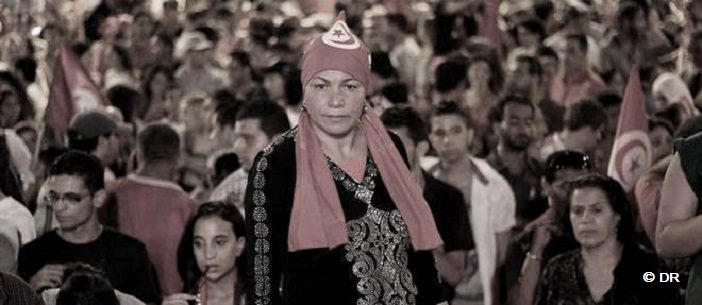The inheritance Law in Tunisia is completely based on the Quran verses. The religious text provides the rule that the son’s share must be twice that of the daughter’s.
Islamic scholars attached the inheritance rights to some conditions and restrictions. For example, any Muslim who changes his religion, loses his inheritance right. Besides, the marital relationship with a non-Muslim man prives Muslim woman of her inheritance rights. This vision was adopted by the Tunisian code of the personal status. The Islamic inheritance approach is embarked on economic reasons. In fact, woman had played minor economic role before 15 centuries.
Today, the situation has changed, the economic role of women in general and in Tunisia specifically became equal to that of man. Furthermore, in some sectors in Tunisia like textile, education, and agriculture, woman plays the major role.
* * *
Moreover, the situation of women’s economic rights is worse in the rural areas. Rural women have no inheritance rights. This is not a written law, but an informal rule that is largely applied. Rural women still economically live in a pre-Islam system. Before 15 century, Arab women had no inheritance right basing in the old proverb that “our sons are sons of our sons, and our daughters’ sons are sons of distant men”. This rule still prevails over the economic rights of rural women. This situation is still a taboo in Tunisia. In rural areas and peasant families, men used to transform all their legacy to their sons while they are alive. This is to deprive their daughters inheriting them. In some cases, they force their daughters to solely revoke their inheritance right and give their shares to their brothers. In these areas, it still is a source of shame or stigma for the woman to ‘compete’ their brothers over ‘their ‘inheritance right.
In the national women day of 2017, the Tunisian president, Mr. Beji Caied Essebsi, declared that the equality acquis in Tunisia are still uncompleted because the inheritance law in his country doesn’t equalize between man and woman. Since that day, the inheritance question in Tunisia has attracted the attention of the international Media, the religious scholars and the political parties. The Tunisian president speech was good in the sense that it took the inheritance question out of the religious taboos list and gave it social and legal aspects. It was also good for the Tunisian feminist and progressive movements that delegitimize or blaspheme every time they open this topic.
In the critical situation of woman rights aggravation and economic turnover in Tunisia, the Presidential proposal to review the inheritance law played a double role. First, it spotlighted the Human rights situation in Tunisia, and it highlighted the shortcoming of the woman rights system developed on the 13th of August 1958. It is crucial here to ask why the founding fathers, those who wrote the Women Status in 1958, didn’t dare to change the inheritance regime although they were audacious enough to stop religious-based social practices like polygamy and the oral divorce. Second, this proposal mitigated the political pressure over the ruler parties and postponed the political opposition appeals for early parliamentary elections. This is because it redirected the public debate far from the social and economic tensions emerging from the prices increase, inflation, unemployment, and economic stagnation.
The president created a commission called the Individual Freedoms and Equality Committee (COLIBE). The committee oversees preparing a report on legislative reforms concerning individual freedoms and equality in accordance with the Tunisian Constitution of 2014 and the international Human rights standards. The inheritance equality question kicked off a long polemic and was the first reason of the hostile campaign that was organized against the COLIBE and led by the conservative party of Ennahdha. The Islamic political movement of Ennahdha grounded its opposition to the inheritance equality on religious reasons. It ran and organized the official political campaign against this proposal and mobilized the citizens to reject it. Ennahdha supposes that this proposal threatens the values system of the Tunisian society that is, according to this party based on the Quran rules. Although this Islamic party kept underlining its political and ideological line modernity, and although they declared making the separation between political and Islamic activities in their last conference, whenever it comes to the modification of the religion based legal texts, this party forgets the previous claims. Its leaders insisted on the maintaining of the status quo of the inheritance system that favorizes man.
In 2017 BCE promised to propose a law project that establishes general and inclusive equality of inheritance right. One year after because of Ennahdha pressure, BCE declared that this law will be optional and that it will not force the citizens to respect it. Only those who support the equality principle can apply it but those who want to maintain the old inheritance regime are free to do so. Nothing changed, this will only create a new divide line between two groups in the Tunisian society. The progressivists will be more stigmatized by the conservatives as apostates, disloyal and even worse. The conservatives will turn inward even more and will have a new religious reason to fight or to use violence against the government. What really blurred the situation is that the COLIBE submitted reforms concerning individual freedoms and equality in accordance with the Tunisian Constitution of 2014 and the international Human rights standards. The inheritance equality question kicked off a long polemic and was the first reason of the hostile campaign that was organized against the COLIBE and led by the conservative party of Ennahdha. The Islamic political movement of Ennahdha grounded its opposition to the inheritance equality on religious reasons. It ran and organized the official political campaign against this proposal and mobilized the citizens to reject it. Ennahdha supposes that this proposal threatens the values system of the Tunisian society that is, according to this party based on the Quran rules. Although this Islamic party kept underlining its political and ideological line modernity, and although they declared making the separation between political and Islamic activities in their last conference, whenever it comes to the modification of the religion based legal texts, this party forgets the previous claims. Its leaders insisted on the maintaining of the status quo of the inheritance system that favorizes man.
The COLIBE submitted a law project on individual freedoms to the Parliament in September 2018, to our surprise this law didn’t cover the inheritance right question. Later, there is a rumor that the new inheritance law will be a Presidential initiative. In this situation, if the Parliament will reject the law project the President can appeal to have a referendum.
Regarding the huge echo of Ennahdha anti-equality campaign and the strong nexus between the traditions and the religious practices in Tunisia, the referendum will be not the best step to be taken for achieving the inheritance equality. For this reason, the progressivist and feminist movements that went to street on the13th of august 2018 to support the inheritance equality raised a slogan denouncing the referendum: “No Fatwa (religious opinion), no Esteftaa (referendum) over women rights”.
* * *
It is very important to pass by the parliament, because it is the specificity of the Tunisian society to make social changes by the legislative bill.
The public and obligatory education, the family planning, the polygamy abolition… all of these leading changes took the form of laws. Although the people were reluctant to accept them in the beginning, these changes became part of the Tunisian pride and identity.
Similarly, we expect that if the inheritance equality proposal will be adopted by the Parliament, the public division between the conservative vision of Ennahdha and the Human Rights progressivist vision will have an end, and the next generations will internalize these changes as part of their legacy.





